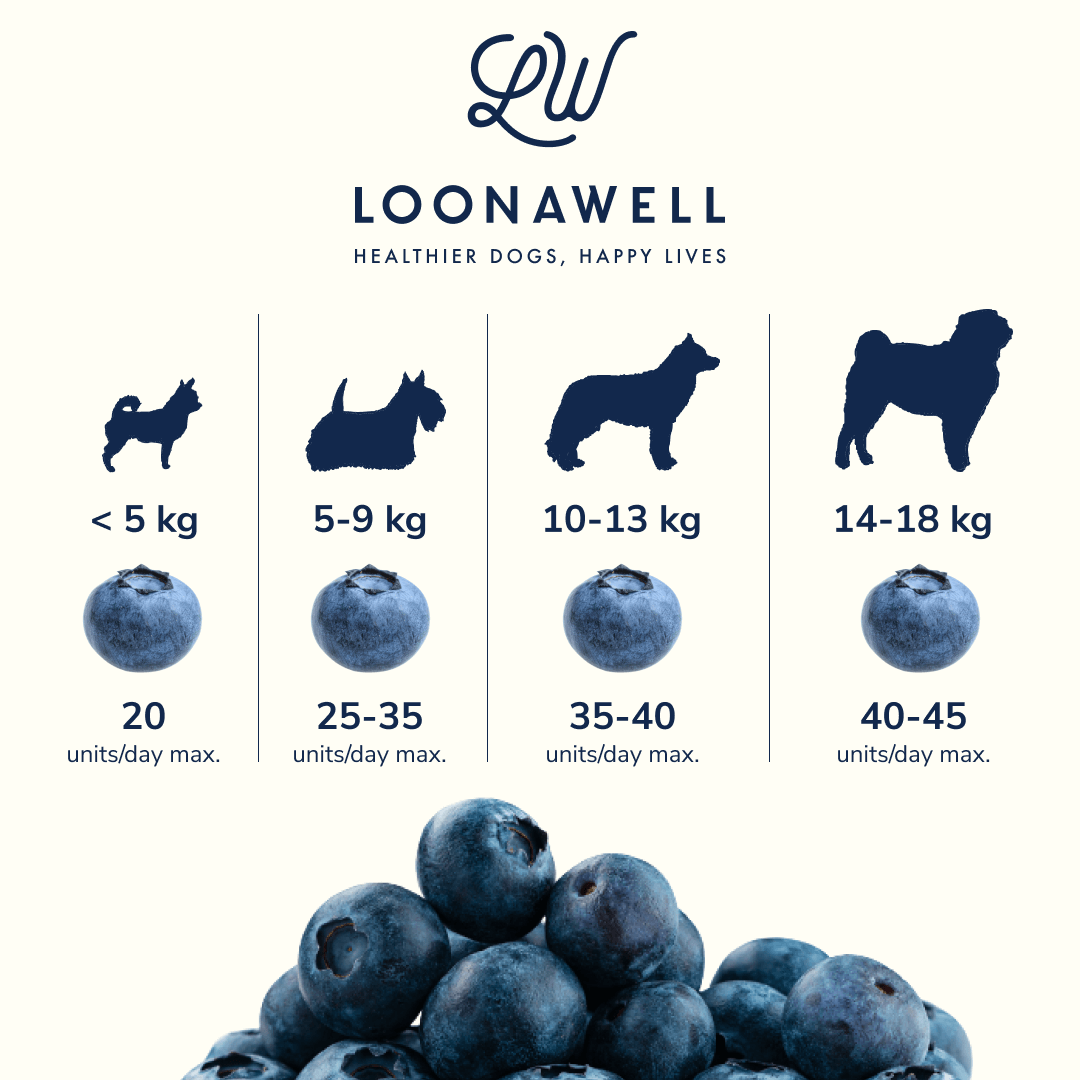As responsible pet owners, we want to ensure that our furry friends receive a well-balanced and nutritious diet. While fruits and vegetables can be a healthy addition to a dog's diet, it's essential to understand which ones are safe for them to consume. Today we'll look into canine-friendly berries!
In this article, we'll explore some popular canine-friendly berries and shed light on whether they are suitable for our canine companions. Plus, we'll introduce you to our organic Super Foodies Treats, specially crafted with the remarkable benefits of blueberries!
Blueberries:
Let's start with the star of the show – blueberries! These tiny fruits are packed with antioxidants, minerals, vitamins, and fiber, making them an excellent choice for dogs. Blueberries offer numerous health benefits, including boosting the immune system and supporting cognitive function. Additionally, they are low in calories (1 blueberry has on average 1 calorie only! Below is an indication of how many you can give your dog.

Raspberries:
Raspberries are another berry that dogs can enjoy. They are an excellent source of vitamin C and antioxidants, which help strengthen the immune system. Like blueberries, raspberries are also a source of dietary fiber, contributing to a dog’s healthy gut. Remember to remove any leaves or stems and offer them as a tasty occasional treat.

Strawberries:
Strawberries are also a healthy, low-calorie, sweet treat for your dog, full of antioxidants, and high in fiber and vitamin C. There’s more! Strawberries also contribute to whitening your pup’s teeth due to the presence of a compound called malic acid. Be sure to remove the green tops before offering strawberries to your canine companion.
For small dogs give no more than 1 strawberry a day, medium dogs 2 strawberries, and for large dogs between 3 and 5 strawberries/day max.

Cranberries:
Cranberries are known for their potential benefits in preventing urinary tract infections in humans. Nevertheless, there aren’t yet studies that confirm the same applies to dogs. Similarly to the previous berries, cranberries also contain antioxidants, vitamins, and minerals. Like blueberries, cranberries are small and round which can represent a choking hazard. Cutting them in half is recommended. Take the blueberry guide above as a reference to how many cranberries to give your furry friend.
Blackberries:
Blackberries can also be a safe and nutritious juicy treat for dogs. These delicious berries, close relatives of the raspberries, are also packed with vitamins, minerals, and antioxidants. They offer benefits such as supporting a healthy immune system and aiding in digestion. Blackberries’ deep color is given by the anthocyanins that have antioxidant properties, which improve brain function, reduce inflammation, and reduce the risk of some cancers.
As always, remove any leaves or stems before offering blackberries to your furry friend.
Take the raspberry guide above as a reference to how many blackberries to give your doggy.
Incorporating canine-friendly berries into your dog's diet can provide them with a range of health benefits. Blueberries, raspberries, strawberries, cranberries, and blackberries are generally safe for dogs when offered in moderation. These delicious fruits are packed with essential nutrients and antioxidants that can support their overall well-being.
To ensure your furry friend receives the incredible benefits of blueberries and other nutrient-rich fruits, we invite you to try our organic Super Foodies Treats. Our treats are carefully crafted to deliver a balanced and wholesome snack for your dog, incorporating the natural goodness of blueberries and other nutritious ingredients. Give your pet the love they deserve with our Super Foodies Treats – a paw-some addition to their healthy lifestyle!
Remember, always consult your veterinarian before introducing new foods to your dog's diet, especially if they have any pre-existing health conditions or dietary restrictions.




